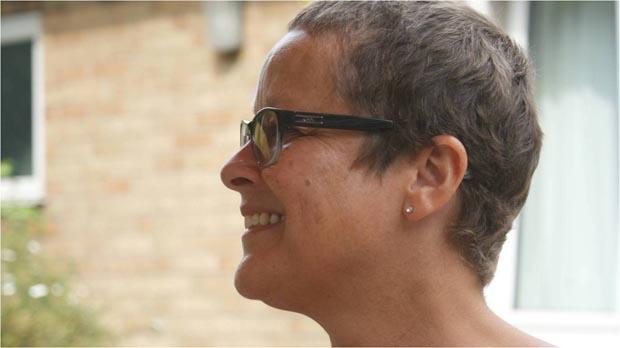
“I had treatment last year and I want to give something back.”
Please note - this trial is no longer recruiting patients. We hope to add results when they are available.
This study is comparing contrast enhanced spectral mammography (CESM) with magnetic resonance imaging (MRI) to see if it is better at finding breast cancer.
It is for women:
 that needs to be looked at further
that needs to be looked at further Women between the ages of 50 to 70 are routinely screened for breast cancer using mammograms.
Doctors ask you to have more tests if they find an abnormal area or lesion. This is to rule out or confirm a diagnosis of breast cancer.
In this study, researchers are looking at a new type of mammogram called contrast enhanced spectral mammography (CESM).
CESM involves having an injection of a dye  ) into a vein of your arm before taking X-ray images of the breast.
) into a vein of your arm before taking X-ray images of the breast.
Doctors think CESM can give a more accurate and detailed image of the breast than a normal mammogram. So it might reduce the need to have more tests to confirm a diagnosis of cancer.
In this study, women will have one of the following:

The main aims of this study are to:
 results
resultsThe following bullet points list the entry conditions for this study. Talk to your doctor or the study team if you are unsure about any of these. They will be able to advise you.
You may be able to join this study if you are a woman going to the Cambridge Breast Unit and all of the following apply
You cannot join this study if any of these apply

This is a pilot study. Researchers need about 100 women going to the Cambridge Breast Unit to take part.
This study is randomised. People taking part are put into 1 of the following groups by a computer:
Neither you nor your doctor will be able to decide which group you are.

CESM and standard care
You will be asked to complete a questionnaire first. It will ask about your health and if you have had any problems with scans in the past.
After this you have the mammogram (CESM). A sample of cells (biopsy) will be taken if necessary.
After the CESM you might have other tests that would be part of standard care, such as an MRI scan. Your doctor will explain if any other tests are needed.
Standard care
As part of standard care you might have:
Your doctor will explain what tests you need.
If you have CESM and standard care, you might have 1 extra visit to the Cambridge Breast Unit. All other tests are part of your normal care.
The possible side effects of CESM are:
You also have an extra dose of  . The amount of extra radiation you have is the same that you get during a flight to New Zealand or 20 chest X-rays. The research team doesn’t think this will cause any problems to your health.
. The amount of extra radiation you have is the same that you get during a flight to New Zealand or 20 chest X-rays. The research team doesn’t think this will cause any problems to your health.
We have more information on having an MRI scan
Please note: In order to join a trial you will need to discuss it with your doctor, unless otherwise specified.
Professor Fiona J Gilbert
Cambridge University Hospitals NHS Foundation Trust
GE Medical
NIHR Clinical Research Network: Cancer
University of Cambridge
If you have questions about the trial please contact our cancer information nurses
Freephone 0808 800 4040

“I had treatment last year and I want to give something back.”